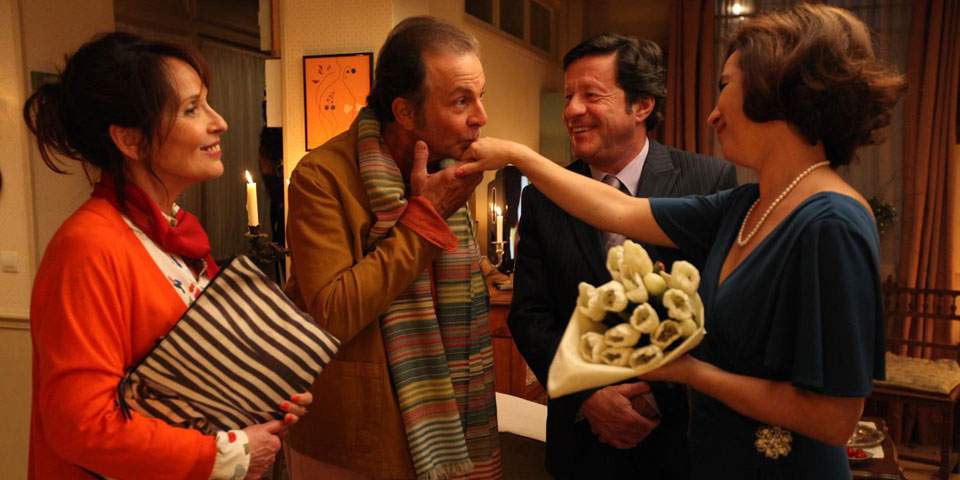The Gilded Cage
The Gilded Cage is just funny enough to mend the wounds caused by all the recent terrible French comedies.
Overview
It's wise to approach modern French comedies with a sense of caution. Given legendary director Francis Veber (The Dinner Game, The Valet) sadly doesn't appear to be working on anything new, the majority of recent French comedic releases in Australia have been the likes of last year's interminable Le Chef, misfire Paris-Manhattan and the recent laugh-free Fly Me to the Moon. It's with utmost trepidation that I approach anything with the words 'comedy' and 'French' in the description.
The Gilded Cage may not 'break' the curse as such, but it sure bends it.
It follows a Portuguese family that has been living in France for the past 30 years, dreaming of one day returning to their home. The patriarch, José (Joaquim de Almeida) is a respected foreman for a construction company, and the matriarch Maria (Rita Blanco) is the concierge for a building of upper-class toffs. Both José and Maria have a reputation for being the most accommodating people, so willing to help others out that their friends and children suggest they are being taken advantage of.
When José’s estranged brother dies, the family is given a will promising them a large property in Portugal, along with a healthy income from the deceased brother’s business. It’s too good to be true, but before they can make plans, the word gets out. Everyone discovers the nicest family in Paris is about to leave and embarks on a ridiculous series of lies and manipulations to keep them in their lives.
Most of the gags aren’t necessarily laugh-out-loud, but it's at least amusing even when it’s not being hilarious. It’s not the most inspiring of distinctions, but given the recent state of French comedies, “amusing” is more than welcome.
It’s interesting watching it with an Australian audience, because many of the jokes hinge on the difference between the French and Portuguese languages, and although some of the jokes hit, others only really make sense if you actually speak at least one of the languages. And ending the film on a gag that requires an in-depth knowledge of celebrity Portuguese soccer players probably isn’t the best way to ensure international crossover appeal. On the other hand, Dodgeball was filled with Lance Armstrong jokes (now largely outdated), and no prizes for guessing which is the more popular sport across the globe.
Still, for all the odd cultural references, the film is charming and feelgood and pretty funny. If you’ve been burned by bad French comedies in recent times, this should certainly help mend those wounds.





